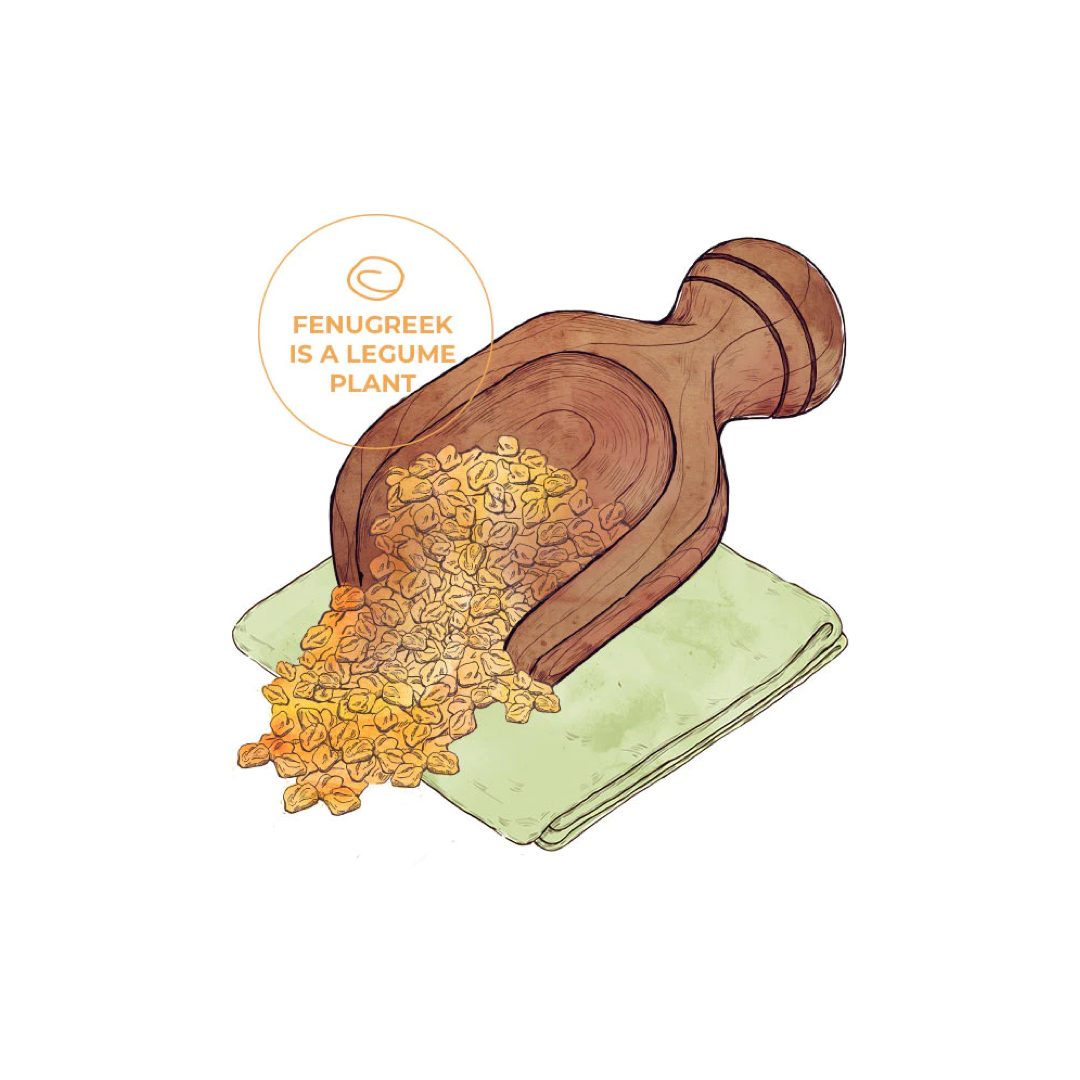
Why We're Fenugreek Free
ga•lac•ta•gogue:
a food, herb or drug that promotes or increases the flow of a mother's milk.
For centuries, certain herbs and foods have been used in different cultures to promote breast milk production. While fenugreek has been the go-to galactagogue in the US for many years and works well for some women, others may experience some undesirable side effects while taking it. In one survey of nursing mothers in the United States, 85 had used fenugreek as a galactagogue and 45% of those mothers reported having experienced an adverse reaction from the supplement.1
In fact, Luna Aziz, the owner of Legendairy Milk® experienced this firsthand with her son when her lactation consultant recommended she try a fenugreek tincture. After determining it was not a good fit for her or her baby, she began to research other galactagogues used in various parts of the world to support milk production.

POSSIBLE ADVERSE REACTIONS OF FENUGREEK INCLUDE:
- Gastrointestinal side effects such as stomach upset, diarrhea and gas that may occur for both mom and baby.¹
- Because fenugreek is a legume plant, those with sensitivities to certain foods such as peanuts, chickpeas or other legumes may experience a cross reaction to fenugreek.²
- Large amounts of fenugreek were found to be anti-thyroid in rats/mice and lowered the thyroid hormone T3 so fenugreek may be problematic for women with thyroid conditions.³, ⁴
- Using fenugreek may exacerbate existing asthma so women with asthma should avoid the powdered forms of fenugreek, including capsules.²
- Large doses of fenugreek may cause lowering of cholesterol and blood sugar. It can also interact with warfarin to cause bleeding. Caution should be used in women with diabetes mellitus or those taking anticoagulants, due to a theoretical increased bleeding risk.⁵
- Perhaps the most unusual side effect is the excretion of a maple syrup odor from the urine, sweat and possibly breastmilk after taking fenugreek.⁵
- As with any herbal product, it may be best to consult with your healthcare provider before use and if adverse effects occur in either mom or baby, please discontinue use.

LEGENDAIRY MAMAS
Do you have concerns about nursing or pumping? The Legendairy Mamas can help! Book a video consultation with a lactation expert from the comfort of your own home.
References
- Lactmed, Drugs and Lactation Database
- Humphrey, Sheila. (2003). The Nursing Mother's Herbal. Minneapolis, MN: Fairview Press.
- Inhibition of triiodothyronine production by fenugreek seed extract in mice and rats.
- The combined effects of Trigonella and Allium extracts in the regulation of hyperthyroidism in rats.
- Fenugreek ( Trigonella foenum-graecum L. Leguminosae): An Evidence-Based Systematic Review by the Natural Standard Research Collaboration.




